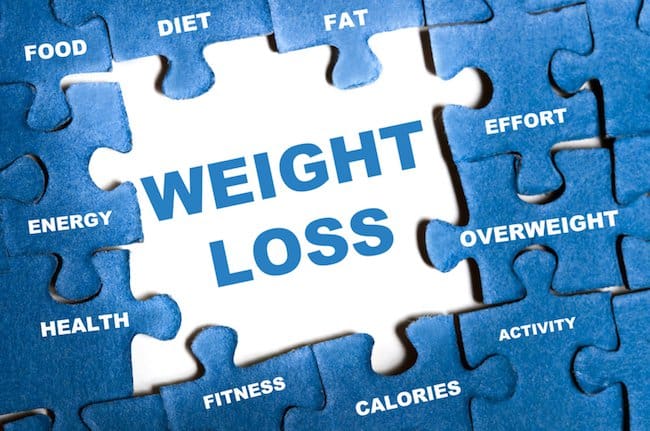
You have the right plan and mind-set to make it a success
Another year has gone and a new one approaches fast. This is the time in which most of us reflect back on what we have achieved so far and get set with next year’s goals. The pads come out and all the big decisions are made, then by February half of these ‘New Year’s resolutions’ end up in the bin.
Weight loss doesn’t have to be another new year’s promise which got lost on the way. Plan smart and get ready for the task and make it a success. Here are a few easy and straight forward steps on how to plan next year’s goals.
1. Madly, deeply, truly
This is something that has to come from within. You can get the best plan in order and have an army style organisation but if you don’t really want to do it then is all in vain. I used to smoke and for years I was stopping smoking. Had all sorts of plans and tried all sorts of substitutes and methods, including support groups.
Didn’t work because I wanted to stop smoking because I knew I should for my health but not because I really, really wanted. However, that day came which I woke up and thought I want to stop and I did and it was pretty easy.
I’m not saying that weight loss can be as easy (or stopping smoking for some people) but if you really want to lose the weight you will do it. The difference was that I wasn’t thinking I want to stop smoking but I was rather thinking I don’t want to smoke. So is for you that you want to lose the weight or is it that you don’t want to eat or live like this any more? The later is a lot harder if your heart’s not in it.
2. Be realistic
Be realistic in what is possible and what fits your capabilities and lifestyle. I don’t want to be disrespectful to anybody, but if your aim is to go from 20 stone to 8 stone and all that by the summer, then this may not be as feasible and it could place your health at risk. There is a happy medium between being pessimistic and thinking you will never get there and between thinking you can run a marathon in 5 min.
The holidays can be emotionally charged times and it is easy to get carried away in the feel of the moment. Too excited, or too empowered or just tipsy and you pledge to be superman for the whole of the next year.
Then comes February you give up. Make decision with reality in mind. What is it that you can do, how much time do you have to spend in exercising or dieting and so on. Start with what you can’t do and then build what you can do around it.(see also: How to set realistic weight loss goals)
3. Enjoy the holidays
To be clear, I am not encouraging a massive binge eating spree here, but by all means don’t try to diet on holidays. Eating sensibly is different than trying to follow the cabbage diet while everybody else is enjoying every treat the season has to offer.
Think about it this way Christmas comes only ones a year. If you deprive yourself from all the Christmas joy you will hate every minute of it and dieting will just feel like a torture. Who sticks willingly to a torture and for how long? Don’t stress yourself about calories and relax about food.
4. Small is bigger
You don’t have to go all radical to lose weight. Sometimes the small changes we comfortably can make are those who last the longer and make the bigger difference. Aim for lifestyle changes no matter how small like replace some chips for veg. and greens, or cut down your portions rather than attempting a very low restrictive diet.
Even if you lose the weight, unless you do change your eating and lifestyle habits the weight will creep back on once you stop dieting. Take the focus off the weight loss when you set your goals and rather concentrate it in changes.
For example set a goal to start walking to work every day rather than loose 6 lbs in a month, or replace your chocolate mid day snack with a fruit. Little commitments like that will add up into cutting down calories and these are the kind of changes which can be made permanent and last a lifetime.
5. Don’t depend on diets
Usually, people follow a diet lose the weight they wanted to lose and then go back to their usual eating habits and eventually put the weight back on. A lot of people do need (or find it easy) to follow a diet. They can provide structure, organisation and standard meals which some may be easy to follow.
It is good to use a diet to kick start your weight loss but don’t depend on it for dear life. Aim to make life and long term diet changes.
Do also remember that there are a lot of poor quality weight loss diets which can cause more harm than help. Choose your weight loss regime carefully and avoid the ones who seem to be too radical.
6. Measure the results
A number one point to keep you going through the hard times is the results. At the end of the day you want to lose weight and what you are doing is for losing weight. Measure the results. It’s easy to lose scope or not actually realise how far you have come. Don’t just look for a change on your weight as results can come in many different ways.
Measure your waist or other parts of your body and your weight on the day you start your diet. Then keep measurements every week or couple of weeks. A week is not always sufficient time for measurable results so 2 weekly time intervals may be more recommended.
You may find that your weight may not have changed but your waist may have shrunk or that your clothes feel baggy, it all counts. Record your results so you can actually see your progress and all the results.
7. Keep it interesting and keep it moving
One of the main problems of weight loss is plateaus and everybody hits a plateau sooner or later. This could be due to your body getting adapting to the lower calorie intake or reaching the last few pounds which are usually harder to lose, or just your body is a bit stubborn and resistant to weight loss. Many reasons why plateaus happen and it can be an individual thing as well.
An easy way to skip the plateaus is to keep your calorie intake variable, within a range rather than a set calorie amount. For example if you are consuming an average of 2500kcal a day now aim to cut down to anywhere between 1500 and 2000kcal rather than following a flat 1500kcal intake every day. This is an example, everybody is an individual and calorific needs will be different for each and every one.
If you are following a specific diet regime maybe swap regimes every month or every 3 weeks. This may also help in keeping things interesting and battle diet boredom. Allow at least 2 weeks for any adaptations before changing your diet.
8. Keep a food diary
What makes you put on weight? Your diet, but do you know what and how you consume food and drinks through a day or a week? Most people have an idea of what they may consume but the reality may be different from what you thought. Keep a diary of all the foods you consume including liquids/drinks; it is surprising how much sugar and/or calories you may consume through drinks.
Keep the diary before you start your diet and then see how many things you can change to lose the weight. To be honest the Christmas week may not be an ideal representation of your average week but it can provide you with an idea of what your actual eating habits are like.










